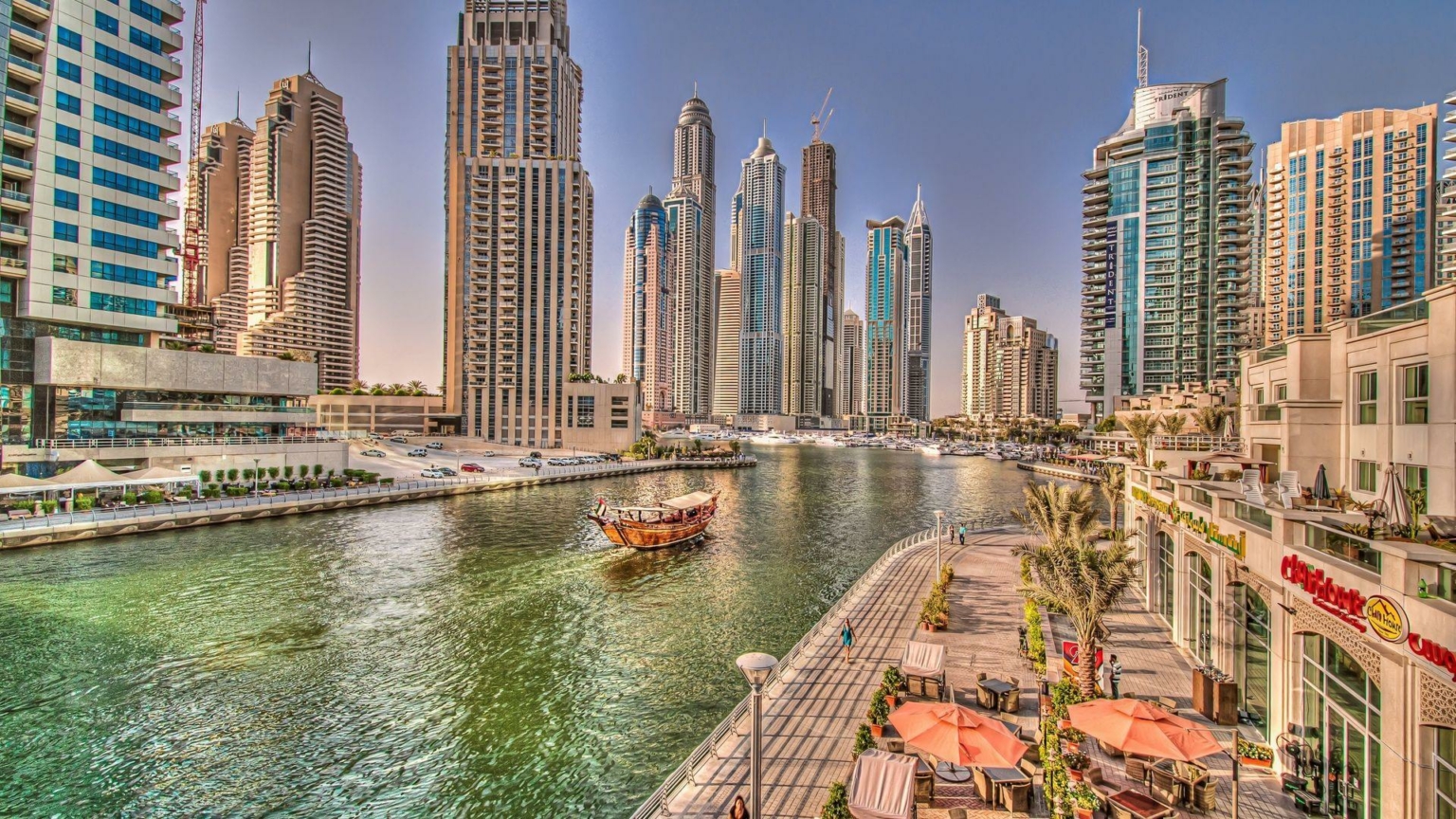REITs in Dubai: A Smart Way to Invest in Real Estate in 2025
Real estate investment in Dubai has long attracted both local and international investors. With the introduction and evolution of Real Estate Investment Trusts (REITs), Dubai's dynamic property market has become even more accessible.
For those looking to build wealth through income-generating assets without owning physical property outright, REITs in Dubai offer a strategic, regulated, and passive income-generating opportunity.
These vehicles have become especially appealing in 2025 as Dubai continues to emerge as a global financial and property hub. Whether you're a seasoned institutional investor or an individual exploring fractional property ownership, REITs can align perfectly with your long-term financial planning goals and property management.
Understanding REITs in Dubai: What You Need to Know
REITs, or Real Estate Investment Trusts, own, operate, or finance income-producing real estate. Globally, they are structured to pool investor funds to purchase or manage commercial and residential real estate. Investors earn income through dividends generated from rental yields and capital appreciation.
In Dubai, REITs follow a legal framework governed by the Securities and Commodities Authority (SCA). This regulatory oversight ensures transparency, compliance, and investor protection. REITs in the UAE are typically structured as publicly listed entities that must distribute at least 80% of their net income to shareholders, making them an attractive passive income option.
Different Types of REITs
There are three main types of REITs available:
Equity REITs: These primarily own and operate income-generating real estate like office buildings, shopping malls, and residential towers.
Mortgage REITs: Instead of owning properties, they finance income-producing properties.
Hybrid REITs: Combine the features of both equity and mortgage REITs.
One of the standout features of REITs in Dubai is the ability for investors to gain exposure to high-value properties without the need for full ownership. This model allows fractional investment in real estate, making it more accessible to a wider audience.
How REITs in Dubai Operate: Legal & Market Framework?
Dubai's REIT market operates within a well-defined legal and regulatory framework. The UAE does not impose corporate tax on REITs, which significantly enhances their profitability. This 0% corporate tax rate applies to income and capital gains, making Dubai's REITs highly efficient income-generating assets.
To list on the Dubai Financial Market (DFM) or Nasdaq Dubai, REITs must meet specific criteria. This includes a minimum capital requirement, mandatory financial disclosures, and adherence to governance standards. Notably, they are obligated to distribute a minimum of 80% of their annual net income to shareholders.
Fund managers and trustees play a crucial role in the operation of REITs. Managers are responsible for the investment decisions and daily management, while trustees ensure compliance and safeguard investor interests. This dual system fosters confidence and reduces the risk of mismanagement.
REITs in Dubai are open to both retail and institutional investors. This accessibility allows everyone, from individual savers to pension funds, to diversify their portfolios through regulated investment vehicles tied to Dubai's thriving real estate sector.
How Investors Are Benefitting from REITs in Dubai?
REITs for Personal Investors
Personal investors in Dubai are increasingly turning to REITs as an alternative to traditional property investment. These trusts eliminate the hassle of managing tenants, maintenance, or property
taxes, while still providing regular dividend income. For those seeking passive income options, REITs offer a low-barrier entry into real estate with the added benefit of liquidity.
REIT shares can be bought and sold on public exchanges, giving investors the flexibility to adjust their positions based on market conditions. Moreover, with minimum investment thresholds generally low, REITs offer an affordable route to participate in Dubai’s property market.
Why Institutional Investors Are Turning to REITs in Dubai
Institutional investors such as hedge funds, pension funds, and endowments are capitalizing on REITs for their robust yield and diversification benefits. By investing in commercial property funds and large-scale developments, institutions gain exposure to Dubai's booming sectors like logistics, hospitality, and retail.
These regulated instruments offer predictable cash flows and reduced risk due to diversified property holdings. Additionally, REITs align well with long-term fund strategies, providing consistent income and capital appreciation without the need for direct asset management.
Top Performing REITs in Dubai to Watch in 2025
As of 2025, Dubai boasts a growing list of high-performing REITs listed on major financial exchanges. These trusts span multiple asset classes, from retail centers to logistics parks.
Some notable names include:
Emirates REIT (CEIC) Limited: One of the first and most recognized REITs in the region, listed on Nasdaq Dubai. It focuses on commercial properties like office buildings and educational institutions.
ENBD REIT: Managed by Emirates NBD Asset Management, this fund holds a portfolio of real estate assets across offices, residential, and alternative sectors.
MENA REITs: These offer regional exposure across the Middle East and North Africa, ideal for those seeking diversified investment portfolios.
Investors looking to maximize returns should carefully assess the REIT’s property focus, dividend history, and asset management capabilities before investing.
Risks and Challenges of Investing in REITs in Dubai
While REITs in Dubai offer numerous advantages, investors must also consider the risks. Market volatility can lead to short-term dips in share prices, particularly in response to property devaluation or shifting rental markets.
Dividends are typically tied to rental performance; thus, economic slowdowns or tenant defaults can impact returns. Furthermore, investors have limited control over property-level decisions, as professional fund managers manage these.
Other challenges include:
Management Fees: These can erode net returns, especially in smaller or underperforming REITs.
Liquidity Risks: Less traded REITs may face difficulty in share buybacks or quick exits.
Macroeconomic Factors: Interest rate hikes, geopolitical instability, and policy changes can influence performance.
Being informed and performing due diligence is essential before committing funds to any REIT.
The Impact of REITs on Dubai’s Real Estate Sector
REITs have significantly reshaped the landscape of Dubai’s real estate market. By enabling fractional ownership, they have democratized access to high-value property investments.
Moreover, REITs are helping to professionalize the sector. The presence of institutional investors and stringent regulatory requirements has elevated compliance standards and promoted transparency.
REITs have also fueled the growth of mid-sized developments, including commercial centers and residential complexes that may have otherwise struggled to secure financing. This influx of structured capital is boosting confidence and attracting global investors to Dubai.
Through integration with DFM and Nasdaq Dubai, REITs have become a vital part of Dubai’s financial ecosystem, linking real estate to broader capital markets.
Are REITs the Future of Property Investment in Dubai?
With strong regulatory support, high liquidity, and growing investor interest, REITs are poised to play a pivotal role in Dubai’s future real estate investment landscape. Their appeal lies in the ability to combine real estate income streams with the convenience of stock-like trading.
In 2025, as Dubai continues to expand its urban infrastructure and digital economy, REITs provide a strategic way to participate in this growth without bearing the full burden of property management or ownership.
Conclusion
REITs in Dubai are redefining the real estate investment paradigm in 2025. They offer unmatched convenience, transparency, and income potential for a diverse range of investors.
From retail investors seeking passive income to institutions looking for diversified, high-yield assets, REITs present a compelling case for inclusion in any long-term financial strategy.
FAQs
Is It Halal for Muslims to Invest in REITs in Dubai?
Halal investing in REITs is permissible if the REITs invest in Sharia-compliant properties. This means avoiding investments in properties associated with prohibited activities, such as gambling or alcohol sales, and ensuring that income is derived from ethically sound sources.
Do Billionaires and High-Net-Worth Investors Use REITs in Dubai?
Yes, many billionaires and HNWIs use REITs as a convenient way to gain exposure to real estate. It allows them to invest in large-scale projects without the burden of direct property management, while still enjoying consistent returns.
Can I Buy REITs in Dubai Without Using a Broker?
REITs like Emirates REIT are publicly listed on Nasdaq Dubai. To invest, you generally need an account with a Nasdaq Dubai-authorized broker. Some local banks also provide trading access, making it easier for individuals to invest without a dedicated brokerage account.
Related Blogs
- Notary Public in Dubai: Role, Benefits in Property Management
- Importance of Title Deeds in Dubai for Property Management
- 12 Questions Answered About Property Management Dubai
Feature Properties
You Might Also Like
Stay in the loop Through our newsletter
Get to know about the latest real estate insights.
Popular Searches
Off Plan Projects
Popular Areas
About Us
Popular Searches
Off Plan Projects
Popular Areas
Next Level © 2026 All Right Reserved









